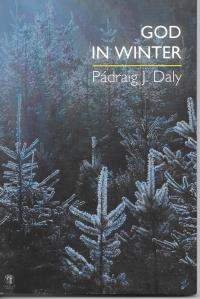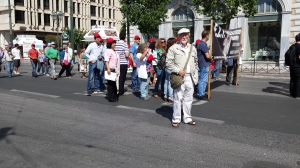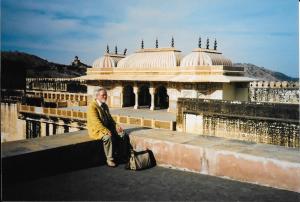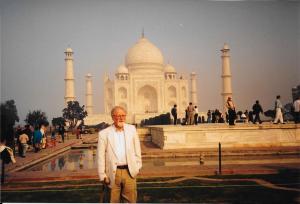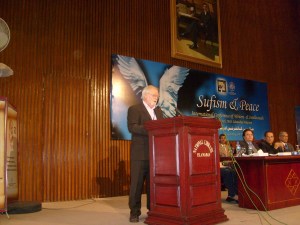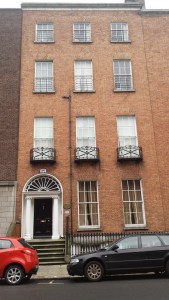Himself was in rare form when he reached the pub last night. Coming in on the bus, he was afflicted by a notice: Room for 10 standees only. “It’s the same when some young fellow does a bunk from Mountjoy: the next day the papers have headlines about the escapee. And are we burning our copies of the Irish Times, or screaming that there is no such thing as an escapee, that it is an impossibility?”
The Writer had the misfortune to suggest that the mistake was around for so long now, it was probably approved by the Oxford English Dictionary. That really drove Himself wild. He laid into the Writer. Accused him and his kind of crimes against language. Then he demanded to know where the apostrophe had gone from the Irish Writers Centre.
He claimed there should be public floggings for such crimes. Look at the hash they were making of Yeats’s poetry on his 150th. Hadn’t a bull’s where to stick the apostrophe. Might as well keep it for scratching their backs. What we needed was a bunch of greybeards, as the French had, to protect the language against atrocity. You wouldn’t catch those boys inserting their dangling apostrophes into inappropriate places.
The Cynic snorted at the ribald innuendo. “What you’re looking for,” he said, “is a CIA or an MI5 for homeland language security”.
“Bloody right, I am, and a Guantanamo for offenders.”
But the Writer was game and rose to it. He said it demonstrated the flexibility of the English Language. Yeats himself, he said, wouldn’t have had a clue where to stick the apostrophe in Yeats’s poetry. He could write, but he couldn’t spell, and he wouldn’t recognise grammar if he met it marching down the street, led by a fife and drum band.
When the Writer gets the wind up, he is well able for Himself. He took a long draft from his Guinness, wiped his lips, and sat back, good and square. “The English Language,” he said, “is infinitely flexible. It is organic, always growing, not like French, which has been fossilised since the Eighteenth Century.”
“Stop waffling,” said Himself, “and tell me how the Writers’ Centre became the Writers Centre.”
“They just decided to drop the apostrophe,” said he, smug as you like – and he sounded like the boy in class who knew the answer when no one else did.
“Apostrophe – you might as well be talking to yourself.” Himself looked around to see if anyone twigged his witticism, but was disappointed. It was two minutes later when I twigged it, and smiled, but the conversation had moved on by then.
“But is it right or wrong?” asked the Young Lad. “To leave out the apostrophe.”
“It’s right if you decide it’s right,” said the Writer, “and wrong if you decide it’s wrong.”
Himself was winding, like a cock looking for a cockfight. “You sound like a Jesuit,” he said. “Tell me the answer you want and I’ll give you the justification.”
“Those boys were ahead of their time all right,” piped in the Cynic.
“So what’s your justification for leaving out the apostrophe?” Himself had decided to drive for home.
“As with the Jesuits, you first decide what outcome you want. If you decide that the Centre belongs to the writers, then it is the Irish Writers’ Centre, apostrophe included. But if you decide that it is a Centre dedicated to Irish Writers, then no apostrophe, the words Irish Writers become an adjectival phrase qualifying Centre. Both are grammatically correct.”
Himself shifted uneasily on his high stool.
“And what about standees?” asked the Young Lad.
“You mean you don’t know your ‘ers’ from your ‘ees’!” scoffed the Cynic with mock astonishment.
“For God’s sake, give him a lesson” said Himself, as he got up abruptly and headed for the door marked WC.
“Alright,” said the Cynic. And the Young Lad was all ears. “Once upon a time Paddy the Irishman and his dear friend, Jock the Scotsman, boarded a bus in London without tickets. It was a Thursday evening and they didn’t have a red rex between them. They sat on the top deck, but after a while they heard the dreaded words behind them, ‘tickets, please’. As the Inspector was making his way towards them, Jock whispered, ‘What will we do, Paddy?’ ‘Don’t panic,’ said Paddy. ‘We’ll pretend we’re two lawyers. They’re scared shitless of lawyers. Now put on your poshest accent and your best English, and start talking.’ So good and loud, and posh as hell, Paddy said, ‘So you were in court today, Jock. How did you get on?’ ‘Oh, very harrowing, very harrowing indeed, a dreadful case.’ ‘Really? What kind of case was it?’ ‘Oh it was that dreadful rape case that is all over the papers today. Dreadful.’ ‘And tell me, Jock, were you representing the fucker or the fuckee?’ ”
There was a bit of a guffaw but it was drowned by the whine of the hand-drier behind the door marked WC.
“Right so,” said the Young Lad as he took a long draught from his pint and thought about it.
